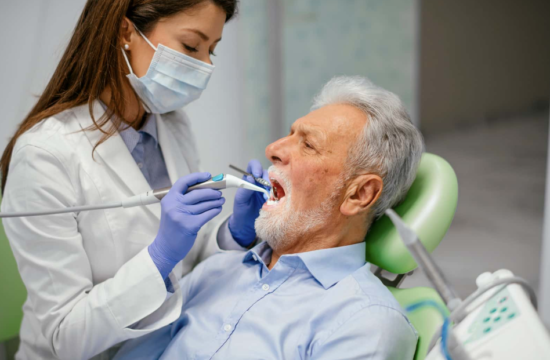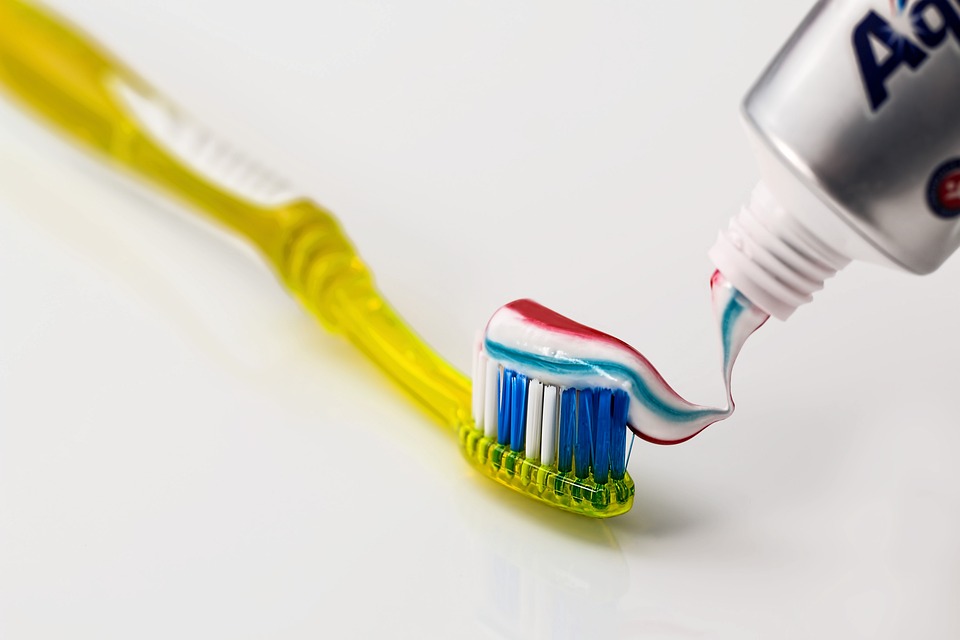We must take meaningful steps towards ensuring equitable access to dental treatment.
(George Walker IV | The Associated Press) A dentist walks to a treatment room to visit with a patient Thursday, Sept. 7, 2023.
According to the National Institute of Health, dental care is the most commonly delayed medical care or treatment in the United States. This raises important questions about the underlying reasons behind this phenomenon.
Of course, a significant factor contributing to this trend is dental anxiety, which is an issue for a substantial portion of the population. Many people expect that dental procedures will be inherently painful or otherwise unpleasant experiences, and this discourages people from seeking care, even when they are experiencing pain or other serious problems. This can lead to unnecessary suffering and complications.
Nobody likes going to the dentist, but the consequences of putting it off can be so much worse.
But that’s not the only reason people delay dental visits — affordability is also a major obstacle. This is a problem I’ve experienced firsthand. When I was told I needed a kidney transplant, a complete workup of my body’s various systems was required to be sure I was a suitable candidate. Because I qualified for Medicaid and Medicare, I was able to get those examinations. The only exception to my coverage was the dental examination. Even though the doctors recognized that oral health is tied to overall health, my insurance didn’t. Generous donations from friends, family and strangers allowed me to get the exam. When the dentist found problems with several teeth, he told me they wouldn’t stop me from getting the transplant but could present serious problems later on if not fixed. But I still couldn’t afford it because it wasn’t covered by my insurance
Delaying dental care is bad for personal and public health, increasing the chances of serious health problems. And making it worse, the Centers For Disease Control and Prevention report that there are significant disparities in receiving dental treatment along racial and ethnic lines from ages 2 to 65 or older. What are the reasons for these disparities, and for delaying oral healthcare in general? Some of it we know, and some of it we don’t. But in Utah, we’re trying to find out.
Understanding the full spectrum of factors that drive these disparities and delay in oral healthcare is imperative. By doing so, we can better treat these problems at their source and take meaningful steps towards ensuring equitable access to dental treatment for all, regardless of age, race or ethnicity.
Through the Utah Health Policy Project, and enabled by a grant from CareQuest, I’m helping to create a patient- and consumer-based oral health coalition. This will be a group of regular people, not healthcare professionals or experienced healthcare advocates.
To begin with, our purpose is to listen to the experiences and stories of regular Utahns who have experienced barriers to accessing dental care and to find out what those barriers are. After this, the coalition will be meeting with other stakeholders in dental and public health to look for solutions to these problems.
If you have any questions or any experiences you would like to share, or are potentially interested in serving on the coalition, please reach out to me by emailing [email protected]. Your feedback and experiences could be a key that helps us unlock solutions to the problems Utahns face with accessing oral healthcare.
Paul Gibbs is an independent filmmaker, kidney transplant recipient and health care activist who has lived in Utah since his early childhood. Paul has worked on healthcare issues with organizations such as Utah Health Policy Project, Voices For Utah Children, Families USA and the Robert Wood Johnson Foundation. He lives in West Valley City with his wife and two sons.







